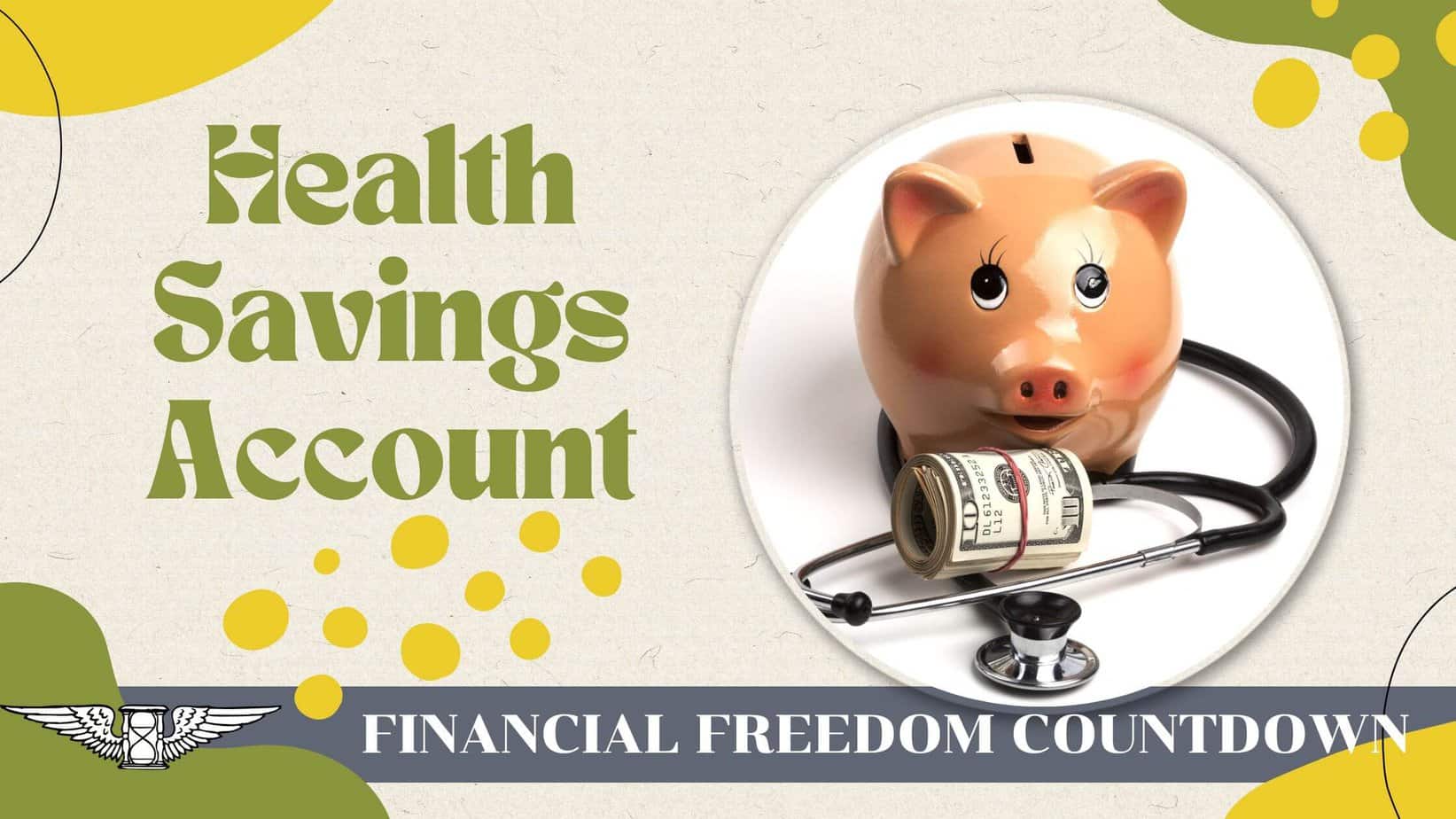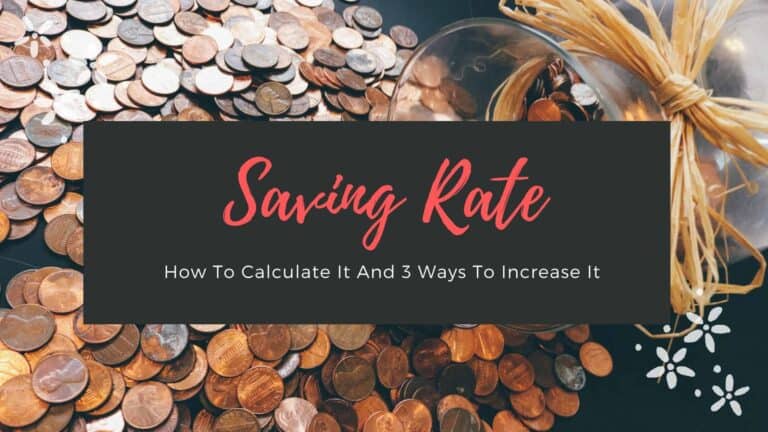Health Savings Account: Complete Guide to the Triple Tax-Advantaged Account

Getting sick is not fun. Worse, the expensive medical bills and damage to our liquid net worth. Fortunately, the IRS has several tax breaks for health care.
Out of all the tax-advantaged accounts, maxing out the health savings account (HSA) is one of the best tax-saving strategies. Let us explore why investing in the HSA is better than even a 401(k).
What Is a Health Savings Account?
A health savings account (HSA) is an account that can help individuals and families save money for qualified health care expenses on a pre-tax basis. Everyone does not have access to Health savings accounts.
To qualify for an account, you must be enrolled in a high deductible health plan (HDHP). And not all high deductible health plans are health savings account HSA qualified. It has to be defined by the Internal Revenue Service to be an HDHP.
The Internal Revenue Service (IRS) defines an HDHP as a plan with a higher deductible than the typical individual health insurance plans and a maximum out-of-pocket limit that includes deductibles, coinsurance, and copays.
For 2022, if you have self-only HDHP coverage, the IRS annual contribution limits are $3,650
What Qualifies as a High Deductible Health Plan?
To be able to enroll in a health HSA, they must be covered by a qualified high deductible health plan. For 2022, the definition of a qualified individual HDHP must have an annual deductible of $1,400 or more, and annual out-of-pocket expenses must not exceed $6,900. That includes co-payments and deductibles but not insurance premiums.
For a family to be covered, the high deductible health plan must have an annual deductible of $2,800 or more, and annual out-of-pocket expenses must not exceed $13,800. As for individual plans, this includes co-payments and deductibles but not insurance premiums. The Internal Revenue Service sets these limits, which can change each year.
What Are Qualified Medical Expenses for Health Savings Accounts?
The Internal Revenue Service determines what qualifies as qualified medical expenses and what a health savings account does not cover as medical expenses.
You can find the extensive list in IRS publication 502, Medical and Dental Expenses.
The Internal Revenue Service defines qualified medical expenses as the costs of cure, mitigation, diagnosis, treatment, or the prevention of disease affecting any part or function of the body.
Qualified medical expenses include payments for legal and medical services attended to by physicians, dentists, surgeons, and other medical practitioners. It also consists of the costs of supplies, equipment, and diagnostic devices needed for these purposes.
You must use these expenses to alleviate or prevent physical or mental disability or illness. They do not include costs that are related or beneficial to overall health, like taking a vacation or vitamins. If a doctor advises vitamins or supplements to alleviate or prevent any condition, they could be covered. It would be best to check with your HSA provider before buying the vitamins or supplements.
These qualified medical expenses also include the premiums you pay for insurance that covers the cost of medical care and the price paid for transportation to get medical care. Qualified medical expenses also include the fees paid for qualified long-term care services. For an HSA, eligible medical expenses include:
- Addiction treatment
- Doctors visits
- Physical therapy
- Preventative care
- Lab tests
- Most vision care
- Most dental care, except for teeth whitening
- Prescription drugs
- Hospital services
- Operations
As mentioned, IRS Publication 502 is very extensive. They list many types of medical expenses that you might not consider qualified medical expenses, including:
- Chiropractor
- Fertility enhancement
- Guide dogs or other service animals
- Capital expenses include the amounts that are paid for special equipment installed in the home or for improvements in the home if their primary purpose is medical care for you, a spouse, or a dependent
- Lead-based paint removal in the home
- Lodging and meals at a hospital or similar institution if the main reason for being there is for medical care
- Transplants
- Oxygen
- Psychiatric care and psychologists
- Therapy
- Transportation for medical care or essential for medical care, which includes bus, train, plane, ambulance
- Wheelchair
- Wig if the patient has lost their hair due to a medical condition
Medical Expenses That Are Not Considered As Qualified Medical Expenses
The list of medical expenses that are not considered qualified medical expenses is also rather lengthy. Medical expenses that are not covered according to the Internal Revenue Service include:
- Controlled substances like marijuana, laetrile, etc., are not covered because they are illegal under federal laws, even if they are legal in some states.
- Cosmetic surgery that doesn’t meaningfully promote the proper body function or prevent or treat illness or disease. This includes hair removal, facelifts, liposuction, and hair transplants.
- Diaper services
- Swimming lessons and dancing lessons even if recommended by a doctor.
- Health club dues.
- Household help other than certain nursing-type services.
- Maternity clothes.
- Medicines and drugs from other countries.
- Ordinary personal use items like toothbrushes and toothpaste.
- Weight loss programs if the purpose of the weight loss is for general appearance or general health. Weight loss programs that are a treatment for a specific disease diagnosed by a physician (such as obesity, hypertension, or heart disease) are considered qualified medical expenses.
How Do Health Savings Accounts Work?
Many employers that offer high-deductible health plans also offer health savings accounts. And some employers will even put in money each month to your health savings account.
Even if your employer does not offer an HSA, but you have an HDHP, you can open your own health savings account. But your high-deductible health plan must conform to the Internal Revenue Service guidelines, as mentioned above, to qualify for an HSA.
The HSA is your account. It is your money, not your employers. If your employer contributes money to the HSA account, it is your money. And if your employer doesn’t contribute money, you are able to add money to your HSA each payday.
You are in control of the HSA account and decide how much you want to contribute to the account, though it cannot exceed the maximum amount each year according to Internal Revenue Service guidelines.
For the year 2022, the yearly annual contribution limit for an individual account is $3,650. For family coverage, the annual contribution limit you can contribute is $7,300 per year. The amount can change each year.
If you have an HSA through your job, you can set up automatic contributions to be taken directly from your paycheck. That makes it easy to save money in the account. With the account, you will receive a debit card and possibly checks to be used for qualified medical expenses.
Where an HSA differs from a flexible savings account, the unused funds in your HSA account roll over from year to year. So, if you have $1,500 in your account and use $500 for a qualified medical expense this year, $1,000 will roll over into next year. You don’t lose what you don’t use this year.
When you reach 65 years or older and enroll in Medicare, you can no longer contribute to the HSA account. But the money in the HSA account is still yours to use on HSA-qualified medical expenses for out-of-pocket medical expenses.
One catch is that if you use this money on non-eligible medical expenses, you will have to pay income tax on that amount. If you’re under 65, you will also pay a 20% penalty.
HSA funds can cover copays, coinsurance, deductibles, and everything mentioned above that count as eligible medical expenses.
HSA funds usually cannot be used to pay for insurance premiums. But, you can use HSA money to pay for health coverage you bought under COBRA, also known as health care continuation coverage. You can also use the HSA funds to pay health insurance premiums if you get unemployment payments.
If you are on Medicare, you can use your health savings account funds to pay premiums for Part B and Part D Medicare coverage. If you are 65 or older, you can use your HSA funds to pay the premiums for employer-sponsored health care, if available.
Investments in the Health Savings Account
The money is yours, and the HSA account is yours. You can invest the money you have in your HSA.
Investing in the account is a great way to help the HSA grow more than just your contributions. And this is one of the best ways to save for future medical costs.
Your HSA is your account for your medical money to be spent on medical needs today and in the future. The HSA is like an individual retirement account or brokerage account since money can be invested. But you will need to put money in the account before investing.
Some health savings accounts have tools to help account holders choose investments, much like a brokerage firm offers. They will help you select which stocks, bonds, exchange-traded funds, and mutual funds to buy. Other investing tools will help account holders balance and rebalance their asset allocation in the portfolio.
Investing the money saved in the HSA will let the money grow faster than savings alone. Any investments in the health savings account should be very conservative, though. Since investing can also lose money. If the HSA is offered through the employer, there could be restrictions on investing options.
Another advantage of investing in the HSA is there are tax benefits. One tax advantage is that the contributions made into the health savings account are tax-deductible. The growth is tax-free, and you will receive tax-free distributions when the money is used for qualified medical expenses.
Another advantage is that, unlike an individual retirement account (IRA) or a 401(k), the money doesn’t have to be taken out by a certain age. The fact that this money is in a tax-advantaged account and grows tax-free makes it better compared to an IRA because you don’t have to withdraw it by a certain age.
What a person decides to invest in is determined by their age and their risk tolerance. If your risk tolerance is low, safer fixed-income investments like bonds and bond funds should be the majority of their investments.
Those that are young and don’t expect to have medical expenses for several years can invest in stocks.
Suppose anyone expects to need their HSA for medical expenses like getting pregnant in the next several years. In that case, they should not risk the money in the account on risky investments or investments that can drop substantially over the short term.
Using the money in the HSA to invest in risky high-flying companies would be unwise. If someone is interested in those types of stocks, investing in them is best done in a regular brokerage account, not a health savings account. The best types of investments for the HSA account include:
- Index Funds: These funds invest in an entire index and track the index. Index funds can be for the Dow Jones Industrial Average, the S&P 500, the Nasdaq composite, the Russell 2000, and the Wilshire 5000. Index funds can be bought in mutual funds or exchange-traded funds and usually have low expenses called the expense ratio.
- Dividend Funds: These types of funds will hold investments that pay a dividend. Income production is the primary goal, with growth being a secondary goal of these funds. Income-producing funds can get their dividends from bonds and or stocks. Companies that pay a dividend are more established companies and more stable. Bonds also pay dividends and are much safer than stocks.
- Fixed Income: These investments are best for those with a low tolerance for risk. Fixed income is the least risky and would include money market accounts and bond funds.
- Individual Stocks: Investing an HSA in individual stocks is, by far, the riskiest route to take. Even though individual stocks can provide more significant returns, they can also give more considerable losses. Individual stocks are more volatile than index funds, dividend funds, or bonds.
Another tax advantage of the dividend funds is that you will not be taxed on the dividends you receive. You can either reinvest the dividends back into the dividend fund or put the dividend cash into your HSA account.
Many people do not want to or feel comfortable picking their own investments. Choosing the correct investments can be confusing, and the research involved takes a lot of time. Some HSA providers offer what is known as a Robo-advisor.
A Robo-advisor is an automated way to find the best investments for each person. The automated advisor will ask questions that pertain to your risk tolerance, age, time horizon, or time to retirement.
Using a Robo-advisor will cost a small fee, but the price will be less than paying a traditional financial advisor. The fee for Robo-advisors at many financial institutions is free for accounts under $10,000. As the account grows, the prices would top out around 0.35% for accounts of $50,000.
It is important to remember that a health savings account, even with all its tax advantages, is not a brokerage account and must be used for medical expenses. So risking the HSA money in risky investments is not the wise thing to do.
Treat your HSA account as part of your overall asset allocation. Follow the principles of diversification.
If your employer-sponsored account has additional fees or charges extra to invest, you can roll over your prior year’s funds to Lively or Fidelity.
Lively HSA is free and has no hidden fees. Also, Lively won’t charge you any fees to roll over or transfer your HSA to them. You can move your full or partial balance directly to Lively from your existing provider. Lively will contact your previous provider and handle the transfer on your behalf.
Tax Advantages of a Health Savings Account
There are numerous tax advantages when using an HSA. The triple tax advantage is the main advantage that includes:
- Tax-free contributions: Account holders will contribute pre-tax dollars through deductions from the paychecks. Any contributions you make to the HSA could be tax-deductible. That helps when it comes time to do your income tax.
- Tax-free growth: All interest or earnings like dividends from the HSA account grows tax-free.
- Tax-free withdrawals: This allows everyone to pay for their qualified medical expenses tax-free.
Since HSA is the only account offering the triple tax advantage, it is imperative to max out your account every year offering the best opportunity to place a number of income-producing assets. The account should form the cornerstone of your asset location strategy.
Tax-Free Contribution
Because of the pre-tax contributions, you can keep more of your paycheck. Another one of the tax benefits is that no taxes are withheld from contributions made to the HSA from your wages.
Every dollar contributed from the paycheck goes into the HSA account instead of paying taxes. That means more money for qualified medical and health expenses is available for you to use.
An example of how tax-free contributions will give everyone more money to pay for qualified health expenses when using an HSA. If a family has $4,000 set aside in the HSA for eligible healthcare expenses, that is the amount they have available to use.
If someone set aside $4,000 for medical expenses, after the taxes are paid on the paycheck deduction, they would have $2,920 set aside. That assumes 27% combined federal and state taxes. This example will vary depending on tax brackets and what state a person lives in. But it will give you an idea of how tax-advantaged having an HSA can be.
Tax-Free Growth
All interest or earnings in your account are tax-free, which increases the money you can use on qualified medical expenses. That makes investing in the HSA account essential in short-term and long-term financial planning.
Tax-Free Withdrawals
This is an especially nice feature of an HSA. When you make contributions to a tax-advantaged account like an Individual Retirement Account of a 401(k), you will pay taxes on the money once you start making withdrawals from the accounts.
But with an HSA, this is not the case. When you make withdrawals from an HSA, they are tax-free, as long as they are used on qualified medical expenses.
Advantages of a Health Savings Account
There are numerous advantages of a health savings account that outweigh any disadvantages of them. It is no wonder that so many use them today for healthcare and medical costs and retirement accounts after age 65.
Over Age 65 Advantages
An HSA has more tax advantages than a 401(k) account or an Individual Retirement Account (IRA). If the contributions to the HSA are made with paycheck deductions, those contributions are made with pre-tax money.
An employer, relative, or anyone can also contribute to the HSA; those funds are tax-free. Any withdrawals are not taxable as long as the money is used to pay for qualified medical expenses.
You can continue contributing to your HSA even if you are not working and deducting them on your federal income tax forms in the tax year.
Once you reach 65, you can use the funds in the HSA for non-medical expenses, but that money is taxable. But there is not a 20% tax penalty charged like there is for those younger than 65. Because of this advantage of an HSA, some will use their HSA as a retirement fund to be used as they want.
Balance Rolls Over
This advantage is among the best compared to a flexible spending account (FSA). An HSA is not a lose-it-or-use-it type of account. No matter how much money you have in the HSA at the end of the year, it will roll over to the following year. With an HSA, there is no time limit for when you have to spend the money.
Investing in an HSA
Those with an HSA can contribute money into the account from their payroll and invest the money.
The money in the account can grow more quickly when compared to just payroll deductions. Stocks, bonds, mutual funds, and exchange-traded funds can be invested in.
It is best if the investments in an HSA are not risky, which is why index funds or income funds are often recommended. Some health savings accounts require a minimum amount of money in the HSA before investing is allowed.
No Minimum Required To Open
Unlike some types of accounts, there is no minimum amount of money required to start a health savings account. All someone has to do is open the HSA and start saving money in the account.
Insured Accounts
Many health savings accounts are held in financial institutions like banks and credit unions that are federally insured against fraud or in case the institution fails. Banks and credit unions are insured for accounts up to $250,000.
Take It With You
If you leave your job or retire, you will take your HSA with you. It would be your account, not the employer’s, even if the employer contributed money in the HSA.
HSA and Medicare
After age 65, the HSA funds can be used to pay for Medicare or Medicare Advantage plan premiums, like for Part B and Part D Medicare coverage, but do not include Medigap policies.
Family Benefits
Your HSA funds can be used to pay for qualified health expenses for your spouse and dependent children, even if your high deductible health plan does not cover them.
Transferring Funds
You can easily transfer the funds you have invested in stocks, bonds, mutual funds, or other investments to pay for the eligible medical expenses when needed.
Disadvantages of a Health Savings Account
With all of the advantages of an HSA, it is hard to think that there are disadvantages, but there are a few.
For Certain Health Insurance Plans Only
To be able to join an HSA, you have to be enrolled in a high-deductible health plan. And there are specific qualifications by the Internal Revenue Service that qualify a health plan as a high-deductible health plan.
According to the Internal Revenue Service, to qualify during the 2022 tax year, the high-deductible health plan for an individual must have an annual deductible of $1,400 or more, and annual out-of-pocket expenses must not exceed $6,900.
For a family plan, the high-deductible health plan must have an annual deductible of $2,800 or more, and annual out-of-pocket expenses must not exceed $13,800. That includes co-payments and deductibles but not insurance premiums for individual and family plans.
High deductibles can be a hardship for those with chronic medical conditions that use health insurance frequently.
Only Used for Healthcare
Before age 65, HSA funds withdrawn to pay for non-eligible medical or non-medical expenses are considered taxable income. In addition to being regarded as taxable income, the internal revenue service also levies a 20% penalty.
The Internal Revenue Service can and does audit expenses charged to an HSA. It is essential to keep all receipts for payments made with HSA funds.
The Internal Revenue Service can also apply tax penalties if you do not stop contributing to your HSA six months before you apply for Social Security benefits.
Not Everyone is Eligible
If someone is listed as a dependent on someone else’s tax return, they cannot enroll in an HSA. But they can be on the HSA account of the person that claims them as a dependent if that person has an HSA account.
HSA Cards Might Not Be Accepted
Not all stores that carry medications or medical supplies will accept the HSA debit card. In this case, you will have to pay for your health or medical supplies out of pocket and then get reimbursed by your HSA.
Usually, paying out of pocket and saving the receipts for future reimbursement is a better strategy since your money can grow tax-free. Plus, you can use your credit cards to pay for your healthcare expenses earning valuable credit card rewards.
Fees and Low Interest
The interest rate paid on an HSA account is low, and some HSA plans charge a monthly fee if your balance drops below a certain level.
If your plan charges a fees, transfer your account to providers who do not charge a fee such as Lively HSA or Fidelity.
Investing Limitations
Many health savings accounts require a minimum balance in the account before they allow the money to be invested. And the investment options could be limited.
Making HSA Contributions After Age 65
This is a tricky one. If someone enrolls in Medicare, they are then ineligible to make HSA contributions. Enrollment in Medicare Part A is sometimes automatic, disqualifying someone from making further contributions to their HSA. There are five possible scenarios to look at:
- Social Security before age 65: When social security benefits begin before age 65, the Social Security Administration will automatically enroll that person in Medicare Part A. In this scenario, that person loses the ability to make further HSA contributions.
- Social Security at age 65: If someone begins taking Social Security benefits when they turn
- 65, enrollment in Medicare Part A is automatic. In this case, the person will lose the ability to make further HSA contributions.
- Social Security deferred: When someone defers their social security benefit payments, enrollment in Medicare Part A is also deferred until the person activates Medicare Part A or other parts of Medicare. In this scenario, the person retains their ability to continue making HSA contributions.
- Elective opt-out from Social Security and Medicare: When someone activates Social Security benefits but does not want current health coverage under Medicare Part A, they can complete a form to remove themselves from Medicare Part A. If the person does not complete this form, they will lose eligibility to contribute to an HSA even if they do not want to have Medicare Part A.
- At this time, it is impossible to retain Social Security benefits and opt out of Medicare Part A. If someone wants to opt out of Medicare Part A, they must opt out of both Social Security benefits and Medicare Part A. In this scenario, when someone completes and signs the elective opt-out form, they retain the ability to continue to make HSA contributions.
- Employed at a small business: Those that work for a small company with fewer than 20 employees have Medicare as their primary insurance at age 65. It would not make sense to opt out of Medicare in favor of keeping their eligibility to continue the HSA contributions. In this scenario, someone would be unable to make HSA contributions because they would be without health insurance.
Since the tax laws, Medicare and Social Security benefits might change always refer to the latest IRS publication. Always consult a licensed professional. The author or Financial Freedom Countdown are not licensed professionals or investment advisors.
Final Thoughts on Health Savings Account
A health savings account helps everyone be able to save for medical and health care costs in the future.
The main difference with an FSA is that you have to use all the money in the account each year. It does not roll over into the following year.
With an HSA, the money left in the account at the end of each year rolls over into the following year.
Another critical difference between the two plans is that you can invest the money with a health savings account. Investing the funds will help the fund grow more than it would be by just adding to it each month. You cannot invest the money in flexible spending accounts.
Only those with a high deductible health plan (HDHP) can enroll in an HSA. The Internal Revenue Service sets the standards for what qualifies as an HDHP, which can occasionally change.
There are tax benefits with an HSA also. Any gains on the investments in the account grow tax-free, which helps during income tax time.
Contributions to the account are made with pre-tax dollars, and withdrawals are tax-free, as long as the money is used for HSA-qualified medical expenses.
The IRS considers a long list of medical and health-related expenses as qualified medical expenses for medical, dental, vision, medications, mental health, and other covered expenses. In addition, you can also use the money in the HSA to pay for copays, coinsurance, and deductibles.
You can also use a Health Saving Account to pay expenses incurred for transportation needed to and from medical care, for qualified long-term care, and lodging and meals at a hospital or medical institution if the main reason for being there is for medical care.
The money in the HSA account is yours. If you quit your job, the HSA goes with you. Even if your employer doesn’t offer an HSA and you have an HDHP, you can still enroll in an HSA.
If your employer-sponsored account has additional fees or charges extra to invest, you can open an account with Lively or Fidelity.
Lively HSA is free and has no hidden fees. Also, Lively won’t charge you any fees to roll over or transfer your HSA to them. You can transfer your full or partial balance directly to Lively from your existing provider. Lively will contact your previous provider and handle the transfer on your behalf.

John Dealbreuin came from a third world country to the US with only $1,000 not knowing anyone; guided by an immigrant dream. In 12 years, he achieved his retirement number.
He started Financial Freedom Countdown to help everyone think differently about their financial challenges and live their best lives. John resides in the San Francisco Bay Area enjoying nature trails and weight training.
Here are his recommended tools
Personal Capital: This is a free tool John uses to track his net worth on a regular basis and as a retirement planner. It also alerts him wrt hidden fees and has a budget tracker included.
Platforms like Yieldstreet provide investment options in art, legal, real estate, structured notes, venture capital, etc. They also have fixed-income portfolios spread across multiple asset classes with a single investment with low minimums of $10,000.





